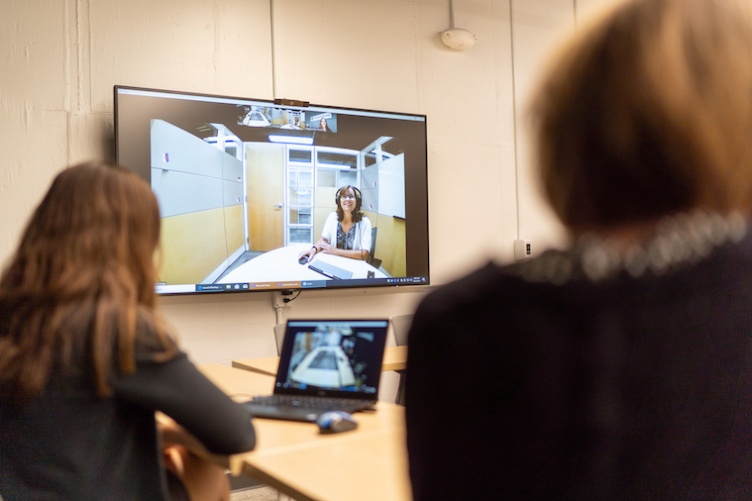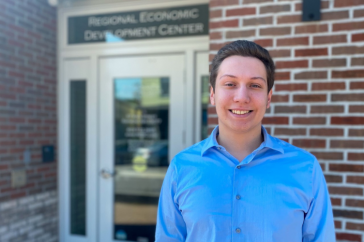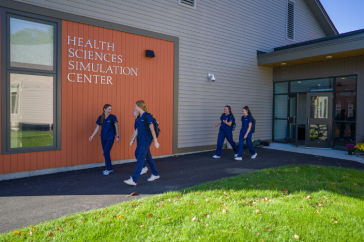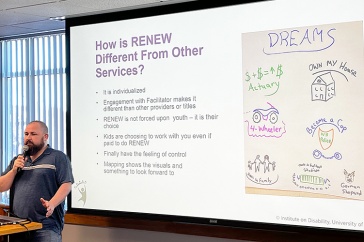
In 2018, when the Telehealth Practice Center at the College of Health and Human Services received a grant to provide distance telemedicine to people in rural New Hampshire, there was no way to know how critical that model of care would be across the state — and the country — today.
Now, in the midst of a pandemic that has changed the way we are living our lives, the training UNH students received in the telehealth lab, and the equipment UNH has been able to share with area healthcare providers, is making a difference for those who might otherwise not be able to get to a doctor.
Telehealth lets patients connect long-distance with clinicians to receive care and monitoring as well as other support services such as education and intervention. Families First, a not-for-profit community health center in Portsmouth, New Hampshire, is using UNH robots to reach patients safely rather than through in-person care. Goodwin Community Health in Somersworth, New Hampshire, is also utilizing UNH’s robots to deliver care in some situations.
Don’t think Star Wars. These robots are similar to an iPad attached to a tall stand that moves and turns. Connected to other telehealth technology, the robot allows a clinician to connect virtually with patients.
“We had been using the telehealth lab to work directly with clients, but our interns are now working very hard to continue their clinical work from afar."
Before the semester switched to remote learning, the Telehealth Practice Center was where students were trained to use Valt or Zoom to conduct a telepractice session, learning everything from telepresence etiquette to licensing to reimbursement.
“UNH has partnered with rural and underserved primary care practices to disseminate telehealth best practices while educating family nurse practitioners students to deliver high-quality health care during the current epidemic when face-to-face office visits have decreased,” says Marcy Doyle of the Institute for Health Policy and Practice and the department of nursing.
Communication sciences and disorders majors who had been working with clients at the Krempels Center, a Portsmouth-based organization that aids people living with brain injuries, have traded in-person sessions for remote collaboration with each other to develop lesson plans that are then sent to Krempels staff to lead group sessions.
“We had been using the telehealth lab to work directly with some of our clients through our speech-language-hearing center and clinic for neurogenic communication disorders, but our graduate clinicians are now working very hard to continue their clinical work from afar. They deserve a lot of praise,” says Jeanne O’Sullivan, clinical associate professor in the department of communication sciences and disorders.
And social work majors are doing their internships remotely, using video and phone contact with clients.
“Students are connecting with clients from home as permitted through their internship sites. We are grateful to our community partners for providing this incredibly valuable learning opportunity for our students at this time,” says Kelsey Boucher, clinical assistant professor of social work.
CHHS received the 4 year, $2.8 million dollar grant from the US Department of Agriculture’s rural distance and learning telemedicine program, which aims to increase services in rural areas across the country through telecommunications, computer networks and other technologies for use by students, teachers, medical professionals and rural residents.
-
Written By:
Jody Record ’95 | Communications and Public Affairs | jody.record@unh.edu



















































